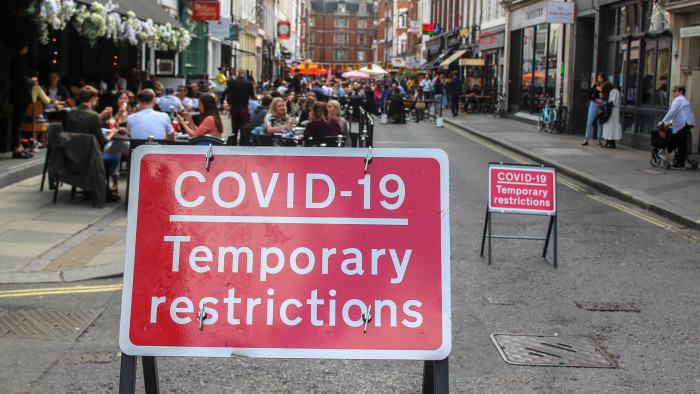
On the day that the Prime Minister attended a party in the garden of Downing Street, Fair Trials, human rights organisations, and lawyers wrote to police chiefs, outlining our concerns about their inconsistent and excessive policing during the pandemic. Also on that day, Nuradeem Mohammed was fined £100 just for standing on a London street. His was one of 807 fines that were issued that week to people who were perceived to have broken lockdown rules.
In their handling of lockdown, the police were shown to be inconsistent and over-zealous, and on occasion acted unlawfully – hundreds of arrests leading to prosecutions under the Health Protection Regulations and the Coronavirus Act have been found to be unlawful. There were also huge discrepancies in how different forces in England handled lockdown, which amounted to a “postcode lottery of pandemic policing”. An analysis of official figures from September 2020 showed that some police forces were eighty times as likely to issue fines than others.
Inevitably, the policing of lockdown also revealed the racism that is endemic in our criminal justice system. The controversial police tactic, stop and search actually increased during 2020, with Black people seven times more likely to be stopped than white people. Not only were people from minoritized ethnic groups more likely to be stopped by the police, they were more likely to be fined – twice as many young Black, Asian, and minoritised ethnic men were fined for breaking lockdown rules compared to white men of the same age.
A recent review of Covid-related prosecutions by the Crown Prosecution Service has found that a third of cases were unlawfully brought. But a further 5,000 Covid-related prosecutions took place behind closed doors under what is known at the Single Justice Procedure (SJP). Under this procedure, people are notified by letter that they are being charged with an offence. If they don’t respond, which around 90% don’t, often because they haven’t received the letter or understood the implications, they can be convicted and fined in their absence. People who are prosecuted under the SJP often do not have access to a lawyer or legal advice, and can be convicted without awareness or participation in the process.
As with many areas of life, the pandemic has highlighted pre-existing divisions in our societies and none more so than in our criminal justice system. While ordinary people were being fined for meeting more than just one friend, the Prime Minister and senior civil servants attended parties without fear of prosecution. For those in power to engage in such conduct with impunity while calling for others to be prosecuted demonstrates that we have a two-tiered system of justice.
The Prime Minister has apologised for his behaviour and although there are some calling for the Met to investigate, he is unlikely to face prosecution. Understandably, many people in Britain are outraged by the Prime Minister’s breach of rules while they made sacrifices, but it is hard to see what purpose his prosecution would serve. It is better that the exposure of his own failure to follow lockdown regulations is a catalyst for a change to how we address undesirable social, economic, or personal behaviour. As Covid has highlighted, the use of criminal sanctions disproportionately affects people on low incomes, minoritised and marginalised communities. There are better alternatives than punishment.
This issue is not limited to the UK or to members of any particular political party or ideological perspective. Politicians of all stripes seek criminal sanctions as a solution to all of society’s ills in the ill-conceived belief that they are a no-cost solution to problems. They are not. There are enormous social and economic costs to criminalising communities. In the case of Covid, resources spent on policing and prosecution, could have been far better spent on public education, testing, and other preventative measures.
Today, there have been further revelations of Number 10 parties, this time involving the now Deputy Editor of the Sun, who has apologised for the “anger and hurt” he has caused. If people with power can apologise for their misdemeanours and move on without fear of fines or prosecutions, then others should be able to as well. In June, Fair Trials and other organisations wrote to the then Secretary of State for Justice, Robert Buckland, calling on him to review all previous Coronavirus-related prosecutions made under the Single Justice Procedure, and to suspend its future use. In light of the revelations about numerous parties at Number Ten, it’s time to go further: rescind and repay all Covid-related fines, clear the criminal records of those who were prosecuted for Covid-related offences, and stop using the hammer of criminal prosecution to address public health issues.


